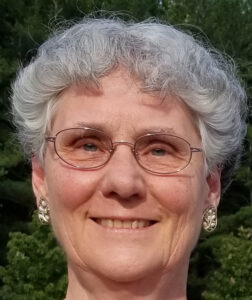Topical Issues
Establishing Career Counseling Culture in Nepal - Brief Background and Strategies
By Saksham Shrestha
 After collecting verbal data and casual interviews from numerous students from around Nepal, it was seen that many have a lack of self-awareness and guidance, an unwillingness to discover oneself, and a go with the flow mindset. It seems to have worked for some students who are very fluid with their life choices. However, not everyone falls into this category.
After collecting verbal data and casual interviews from numerous students from around Nepal, it was seen that many have a lack of self-awareness and guidance, an unwillingness to discover oneself, and a go with the flow mindset. It seems to have worked for some students who are very fluid with their life choices. However, not everyone falls into this category.
Excessive career anxiety is seen in students who are comparatively more concerned about their unclear goals and visions. However, according to the survey done by Career Disha Nepal, most of them end up choosing from a short list of career choices like a medical doctor, nurse, and engineer, induced by following the crowd culture and societal pressure and prestige. Students who fasten their hopes on the so-called top careers are not always well off and those who do not get a chance to prove themselves will either end up investing a lot of time and effort following the same route or end up being confused and anxious about their future. Ultimately most of them leave the country in desperation. Other career choices are considered bad or lowly, which results in students with potential in unconventional fields abandoning their choices and also ultimately leading to brain drain. Also, a linear mindset and lack of awareness of diverse and hybrid career options have reduced the options for people who have multiple interests, unique talents, and aspirations.
Due to booming study-abroad consultancies and their mass marketing throughout the country, people connect career counseling mostly with study abroad. Most of these consultancies sell the idea that whatever you study outside is good. Although this approach has worked exceptionally well for some, not everyone has experienced the perks. These people are desperate to reinvest their lives in things and choices that matter to them.
Career counselors need to recognize that, given the education system in Nepal, traditional counseling practices are not effective. Realistically speaking, the educational system is constricting and for individuals who a product of the system, not every career choice is attainable within the economic dynamics and job trajectories in Nepal. Therefore, to create a desperately needed change in the career counseling sector, the following strategies may be useful.
1. Start with the establishment of a club/ association for career counselors.
There is a lack of unity among the few professional career counselors in Nepal. This fuels the need for an organization to facilitate networking, sharing of experiences and expertise, and working collectively on projects for maximum impact. This can be done by starting a hub or an association for career counselors.
2. Capacity building and training.
Local-level career counseling training (and further Training of Trainers (TOT)) should be available for teachers, staff, and interested individuals in as many higher secondary schools as possible in all 77 districts. Neither the Council for Technical Education and Vocational Training (CTEVT) nor any institution in Nepal has included career counseling in their curriculum. There is no national-level regulation of this profession as there is no council for career counselors in Nepal yet. Therefore, training will only be able to provide skills without any professional certification. However, this will at least enable students to reach out to people for career guidance, as Nepal needs more than 30000 counselors for over 1 million students.
3. Assessments and tools.
Creating an assessment that is suitable for Nepal’s diverse demography, human resources, job market context, and education system is also a must. There are a few assessments that have been made by People Development Lab and Career Disha Nepal. However, more assessments that are cheap, reliable, and accessible to counselors and diverse clients must be collaboratively.
4. Career fests, and interaction with counselors
Career fests and interaction with career counselors can be conducted during the end of national exams when a lot of students venture for further studies and are making career choices. This opportunity can be taken to market these services and make students aware of the presence of diverse career options. Students could be offered assessment tools and workshops for self-awareness and development. This can also be a time for honing and promoting skill-based training among financially weak students.
There definitely are diverse clients ranging from regular students to late career shifters. But for the sake of the initial establishment of a counseling culture, we can narrow our niche and then further expand to other diverse areas of counseling. This would not only make aware Nepalese of the existence of career counselors but also create a platform for this profession.
5. Local level workshops
Despite a few career fests that have been conducted in the past, almost all were located in the Kathmandu valley as it is an education hub for many students from around the country. To ensure an early grasp of career awareness, different local-level workshops should be held in educational institutions in all 77 districts of Nepal. To enable these workshops, we need:
Funding for the project.
Collaboration with APCDA and local NGOs.
Building a team for the cause.
Planning for career guidance workshops.
Starting with one school.
Exploration of possibilities and showing hope to young individuals.
Accessibility for students seeking further professional guidance and provision of career tools.
Post-workshop reflection and effectiveness analysis.
For the Nepalese context, the ‘IKIGAI’ workshop could be very effective as it is easier to conduct and understand, includes tools for self-awareness and exploration, and is reliable and interesting.
6. Establishing a career guidance hub.
career choice is a huge source of stress and anxiety, a hub for students who are seeking professional help must be created. Students who are confused must have a place to search for guidance. Creation and promotion of a website can be done during workshops. This will facilitate connection between trained career counselors and clients.
As parents and children are being more liberal about their life choices, positive changes are being seen. Looking at this need and a growing market for career counseling, Nepal can be a hub for other professional career counselors from abroad who are striving to practice their skills in needed communities. Associations like APCDA can therefore be a huge assistance in bringing forth this change.
A country where people get to choose their way of living on their terms, excelling at their skills, and giving their best at things they choose to do professionally would be a great factor in assisting SDG 8 in South Asia. Despite the complexity of this issue, career counseling must be intensely strategic in Nepal to shift perspectives from traditional mainstream degrees to diverse fields and beyond.
Mr. Saksham Shrestha
 Earned a vocational degree from People Development Lab in Psychosocial Counselling and is working on a Bachelor of Technology in Environmental Engineering at Katmandu University. He has been a project director and teacher for Global Peace Foundation (GPF) Nepal, AIESEC Nepal, and People Development Lab, and he was a 2022 APCDA Scholar. He is now serving as a career practitioner in private practice. You can find his blog here: https://sakshamblogsforyou.wordpress.com/
Earned a vocational degree from People Development Lab in Psychosocial Counselling and is working on a Bachelor of Technology in Environmental Engineering at Katmandu University. He has been a project director and teacher for Global Peace Foundation (GPF) Nepal, AIESEC Nepal, and People Development Lab, and he was a 2022 APCDA Scholar. He is now serving as a career practitioner in private practice. You can find his blog here: https://sakshamblogsforyou.wordpress.com/
Why We Should Stop Using ‘Soft’ Skills
by Dr. Ann Villiers
APCDA Career Competencies
1. Communication and interpersonal
16. Career management coaching
17. Employability skills
Note: This article is in response to the inclusion of a definition of ‘Soft Skills’ in the APCDA Glossary of Career Development Terms, Version 2.
In a rapidly changing world, people of all ages need to understand what skills will enable them to adapt and succeed in whatever context the future brings.
There is a wealth of information available to help gain this knowledge, but care is needed in how these skills are described and grouped. Skill terms used include: employability, 21st century, transferable, core, STEM, tangible/intangible, technical/non-technical, generic, cognitive/non-cognitive, and soft/hard. With such a confusing range of over-lapping terms, it is not surprising that people have difficulty working out what skills they have and may need.
When categorizing skills, we are fond of using binaries: technical/non-technical; cognitive/non-cognitive; hard/soft. Apart from a lack of consistency in category definitions, there are several other problems with these binaries:
- They privilege one group of skills over another. Anything in a ‘non’ category, meaning an absence, is of lesser importance.
- The ‘non’ category may be a collection of skills that have little in common.
- They overlook that the main defining quality of any skill, e.g. ‘technicalness’, may fall along a continuum rather than being simply present or absent.
- They focus on distinguishing skills from each other while overlooking their interrelatedness, which is a far more important work-related quality.
The most unhelpful skill terms are ‘soft’ and ‘hard’. Their use is widespread, as any Internet search shows. While ‘soft’ skills may seem like a convenient shorthand, the term is imprecise, inaccurate, and gender-biased. It’s time for career practitioners, researchers, teachers, academics, policy makers and consultancies to join the trend and stop using this incorrect and misleading term.
The term ‘soft’ skills is imprecise
What skills are categorized as ‘soft’ is a moveable feast, covering a diverse mix of important skills, attitudes and behaviors. Compare any skill grouping classified as ‘soft’ and you’ll find there is little consistency, other than to usually include communication and interpersonal skills. Skills chosen for such lists may be based on different rationales and selection can lack empirical validation. (See Mantione 2019, Green 2011, Oates 2002 for analyses of skill term deficiencies).
The term ‘soft’ skills is inaccurate
Typically, ‘soft’ is used to refer to communication and interpersonal skills, implying these skills are light-weight. Describing them as ‘non-technical’ or ‘intangible’ further implies, inaccurately, that they require little effort and no special knowledge. Communication covers a wide range of demanding abilities (Villiers, 2018) essential for many occupations, including those that require high levels of specialized, professional knowledge and know-how. These abilities include building rapport, questioning to build understanding, influencing, negotiating, networking, persuading, coaching and mediating, all heavy-weight skills that have a huge impact in the workplace.
There are few jobs that don’t involve other people and many a project fails due to human, rather than technical, factors. Most so-called technical jobs involve applying interpersonal skills. Success in a science career, for example, often requires developing fruitful collaborations, cultivating friendships with colleagues, mentoring students, and effectively communicating work at conferences and seminars.
So-called ‘soft’ skills are falsely contrasted with equally inaccurate ‘hard’ skills on the basis that the latter are observable, learnable and measurable, qualities claimed, inaccurately, as not shared by ‘soft’ skills. While learning how to make a presentation, write a report, chair a meeting, or negotiate a contract may differ from learning pre-flight procedures, or calculating how much weight a bridge can bear, these skills are still learnable, are challenging, and are observable. And if collaboration and communication are not teachable and learnable, why do we tell people they need these skills?
We do our clients a major disservice by using the flawed ‘hard’/’soft’ skills distinction. It perpetuates the false idea that there is little rigor in learning and applying emotional intelligence, persuasion, negotiation, and team leadership. It also fails to recognize that skills are interrelated and context-based. While we can theoretically distinguish cooperation from teamwork, in practice, teamwork won’t happen without some cooperation.
The term ‘soft’ skills is gender-biased
Career decision-making is a highly complex interaction of ideas and influences from multiple sources. Research confirms that children form gender-based ideas about careers early in life, and that the media feeds ideas about what work is suitable/unsuitable for women and men (Smith et al. 2012, NZ Council for Educational Research, National Education Union). So-called ‘soft’ skills are not the preserve of girls and women. They are not female or feminine skills. Nor are they less demanding than other skills. Everyone needs to build communication and interpersonal skills, regardless of career choice.
The term ‘soft’ skills is unprofessional
Terminology is part of a profession’s special knowledge. Carefully defined terminology standardizes communication, enables people in a profession to communicate consistently, reducing ambiguity and increasing clarity.
Many reports about skills are not written by qualified career practitioners. Adopting or repeating others’ use of ‘soft’ skills does not help to build professional recognition of the value of career practitioners and their services.
Given the investment we make in our profession and in acquiring the skills identified in our competencies, including interpersonal, counselling, coaching and client service skills, would we happily describe these as ‘soft’ skills? I think not.
Alternatives to using ‘soft’ skills
If students and job seekers are to understand what skills are in demand, career practitioners, researchers, teachers, and policy makers need to use accurate, consistent, professional skill terms. This means dropping the use of ‘soft’, as well as ‘hard’, skills.
Alternatives to using ‘soft’ skills are:
When discussing specific skills, use specific skill words, like communication skills, problem solving skills, interpersonal skills.
When grouping skills that relate to working with people, use social skills.
When a national program identifies a set of core or employability skills, avoid referring to these skills as ‘soft’ skills.
When discussing reports and research on skills, avoid adopting or repeating any use of ‘soft’ skills. Even saying “so-called ‘soft’ skills” keeps the term in circulation.
The more career practitioners around the world stop and reconsider their language, the more we will have consistent, accurate terminology that well serves our clients and profession.
References
Green, F (2011) What is Skill? An Inter-Disciplinary Synthesis published by the Centre for Learning and Life Chances in Knowledge Economies and Societies at: http://www.llakes.org
Mantione, A (2019) Is this a skill which I see before me? The challenge of measuring skills shortages, LMI Insights Issue No 14, Labour Market Information Council, Canada: https://lmic-cimt.ca/wp-content/uploads/2019/06/LMI-Insights-No-14-2-1.pdf
New Zealand Council for Educational Research, (2008), Report prepared for Ministry of Women’s Affairs, Trading Choices: Young people’s career decisions and gender segregation in the trades, https://women.govt.nz/sites/public_files/trading-choices-young-peoples-decisions-and-gender-segregation-in-the-trades.pdf
Oates, T (2003), ‘Key Skills/Key Competencies: Avoiding the Pitfalls of Current Initiatives’, in Definition and Selection of Key Competencies, Contributions to the Second DeSeCo Symposium 2002, Geneva, Switzerland, pp. 174-190, http://www.oecd.org/education/skills-beyond-school/41529505.pdf
Smith, Stacy L, PhD, Choueiti, Mark, Prescott, Ashley, & Pieper, Katherine PhD, (2012), Gender Roles & Occupations: A Look at Character Attributes and Job-Related Aspirations in Film and Television, Geena Davis Institute on Gender in Media, https://seejane.org/wp-content/uploads/full-study-gender-roles-and-occupations-v2.pdf
Villiers, A, PhD (2018), More than 100 skills in communicating, https://www.selectioncriteria.com.au/site/wp-content/uploads/100Communicationskills.pdf
Dr. Ann Villiers
Is Australia’s only Mental Nutritionist, specialising in the sense-making process. She is a career coach, writer and author, and a Fellow member of the Career Development Association of Australia. Ann was awarded Life Membership in 2019, and in 2015 was awarded the President’s Award for Professional Leadership. An advocate for dropping ‘soft’ skills, Ann can be contacted on avilliers@mentalnutrition.com.
Violence Against Asian Americans in the USA
By Dr. Marilyn Maze
 The news in the USA has recently been full of violent attacks against Asian Americans. Empty, disturbed people can easily grab a weapon of mass destruction in the US and kill many innocent people before they are stopped. It is easy for isolated individuals without meaningful attachments in their lives to blame their emptiness on people with different physical characteristics. This kind of hatred and bigotry has always been part of the US but in the past was kept out of the headlines by leadership that “deplored” overt bigotry. Currently, this type of deplorable behavior has become admired in the U.S. Violence was incited by our former President who took great pleasure is calling COVID-19 the “China Virus.” The former President is idolized by large groups of people who claim that they are the majority and they are busy passing laws to make it illegal to vote against the former President.
The news in the USA has recently been full of violent attacks against Asian Americans. Empty, disturbed people can easily grab a weapon of mass destruction in the US and kill many innocent people before they are stopped. It is easy for isolated individuals without meaningful attachments in their lives to blame their emptiness on people with different physical characteristics. This kind of hatred and bigotry has always been part of the US but in the past was kept out of the headlines by leadership that “deplored” overt bigotry. Currently, this type of deplorable behavior has become admired in the U.S. Violence was incited by our former President who took great pleasure is calling COVID-19 the “China Virus.” The former President is idolized by large groups of people who claim that they are the majority and they are busy passing laws to make it illegal to vote against the former President.
The majority of Americans are grieving for the Asian Americans who have experienced this violence and we are looking for ways of demonstrating support for the Asian American community. Due to the strong division among Americans and the ease with which the hate groups can find media outlets to build support among like-minded people, it is not easy to stop this type of behavior. Those who encourage it are happy to villainize those who condemn it. Shouting louder and inciting larger crowds to protest does not seem to help.
I am confident that I speak for all American members of APCDA in expressing horror at the violence being directed toward Asian Americans. “Asian Americans” is a large group which includes people who have recently moved to the USA from Asia, people whose parents have lived in this country for generations, and many in between. This kind of hatred toward people who look different is common in the US and often expressed against any person whose skin is not white. It is painful and destructive, no matter what color our skin may be. We know that our skin color and facial features have nothing to do with our ability to contribute to society and lead noble and valuable lives. We also know that cultural differences enrich all of us. The wisdom, beauty, and art from our friends in Asian countries inspires us and is incredibly valuable in broadening our thinking.
Responses by Readers
In all my life, I have never experienced violence targeting Asians as I am now. Our former (U.S.) President holds the power to quell most of the bashing and violence, but he has yet, shamefully, to take leadership on the matter. I was a foster mother to a young man from Asia who now has his own children. Because he is so successful, I have never worried about him until now. I hope the world realizes that most of the USA is against the bashing, the violence, towards our Asian brothers and sisters. Many of us are taking steps to end it.
I think we must realize that the U.S. is a diverse country. The U.S. is not one like-minded group of people and the leadership in the U.S. changes every 4 to 8 years. I have found that when there is leadership that makes excuses for hate crimes and does not address underlying issues, hate crimes increase. Right now, the U.S. is going through a lot of change and people are frightened about what the future has to offer them. The statistics on hate crimes in the U.S. increased dramatically in the last 3 years. In psychology, we learn that such issues can fester and create irrational thoughts and result in harm to self or others. Such hate is like a cold sore that blisters and gets worse until the most helpful medicine is taken to help heal the problem. It appears that we need time to heal. Luckily, there are many of us in the U.S. who read about horrendous hate crimes and direct our efforts at resolving the issues.
Our Attorney General Garland is creating an office to address hate crimes. Unfortunately, change is slow and the news cycle (especially social media) is fast. If my memory serves me, it took more than 40 years for the U.S. to apologize to Japanese Americans about what the U.S. did to them during World War II!
I believe that most of us are members of a very diverse APCDA because we value interacting with diverse cultures that provide us with a wealth of resources and points of view. Nelson Mandala once said “Education is the most powerful weapon which you can use to change the world.” At many of our APCDA conferences we have discussed the importance of hope in career development, but we must take action to create hope. I do believe that a larger proportion of people in the United States are interested in taking action and making the U.S. a more peaceful and accepting country. What you are seeing in the news now is coming from so much disruption in our political and international situation over the last decade. It may take years, but many are working on helping our citizens to have a better life and not to live in fear. Isn’t that the essence of career development? if there is hope, we can change, and we must be the change we want to see in the world (to paraphrase Gandhi).
New Career Guidance and Social Justice Website
By Prof. Ronald Sultana
 A group of career guidance researchers and practitioners have developed a website that features short pieces on career guidance and social justice. These take the shape of reflections, commentaries, and brief articles. The site also presents case studies where practitioners describe their effort to promote social justice in their daily engagement with citizens in a variety of contexts.
A group of career guidance researchers and practitioners have developed a website that features short pieces on career guidance and social justice. These take the shape of reflections, commentaries, and brief articles. The site also presents case studies where practitioners describe their effort to promote social justice in their daily engagement with citizens in a variety of contexts.
Here is the link to the site: https://careerguidancesocialjustice.wordpress.com
We invite you to contribute to this initiative, which is being accessed by thousands of people involved in career guidance world-wide.
Here is the link to instructions and style guide for contributors: https://careerguidancesocialjustice.wordpress.com/style-guide/
Please send your contribution to Tristram Hooley: tristram.hooley@gmail.com
We also encourage you to share this information with your network.
Ronald G. Sultana
Is professor of education at the University of Malta. He has participated as a consulting expert in several international reviews of career guidance across Europe, and in the Middle East and North Africa region. Professor Sultana has authored or co/edited over 30 volumes, and published more than 120 papers in refereed journals and books. He has most recently edited Career Guidance and Livelihood Planning across the Mediterranean (Sense Publishers, 2017), and has co-edited, with Tristram Hooley and Rie Thomsen, Career Guidance for Social Justice: Contesting Neoliberalism (Routledge, 2018)
